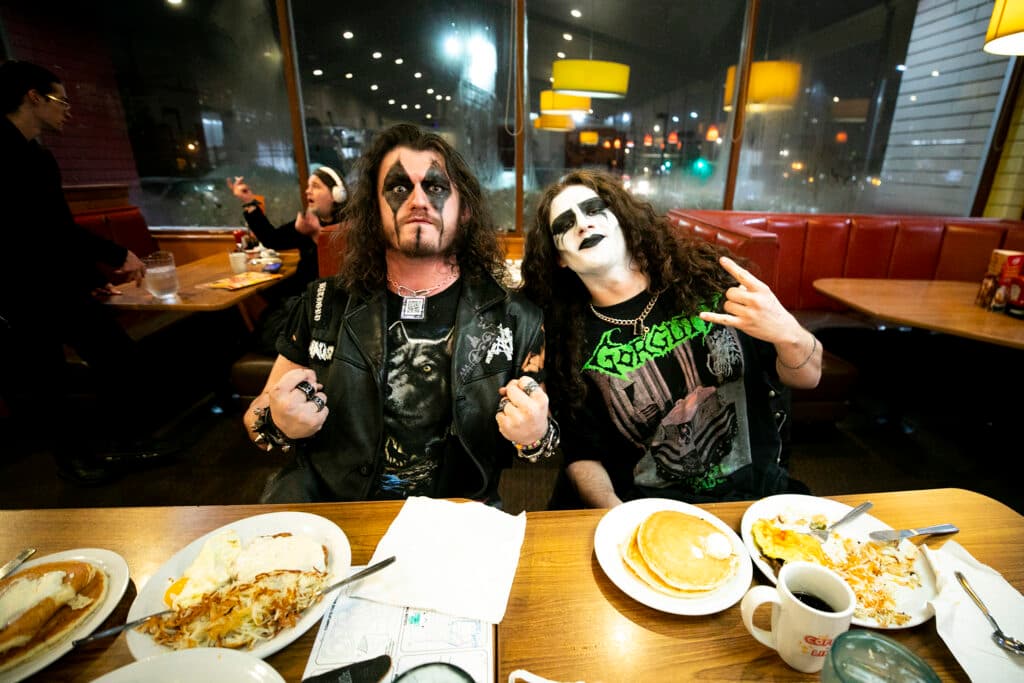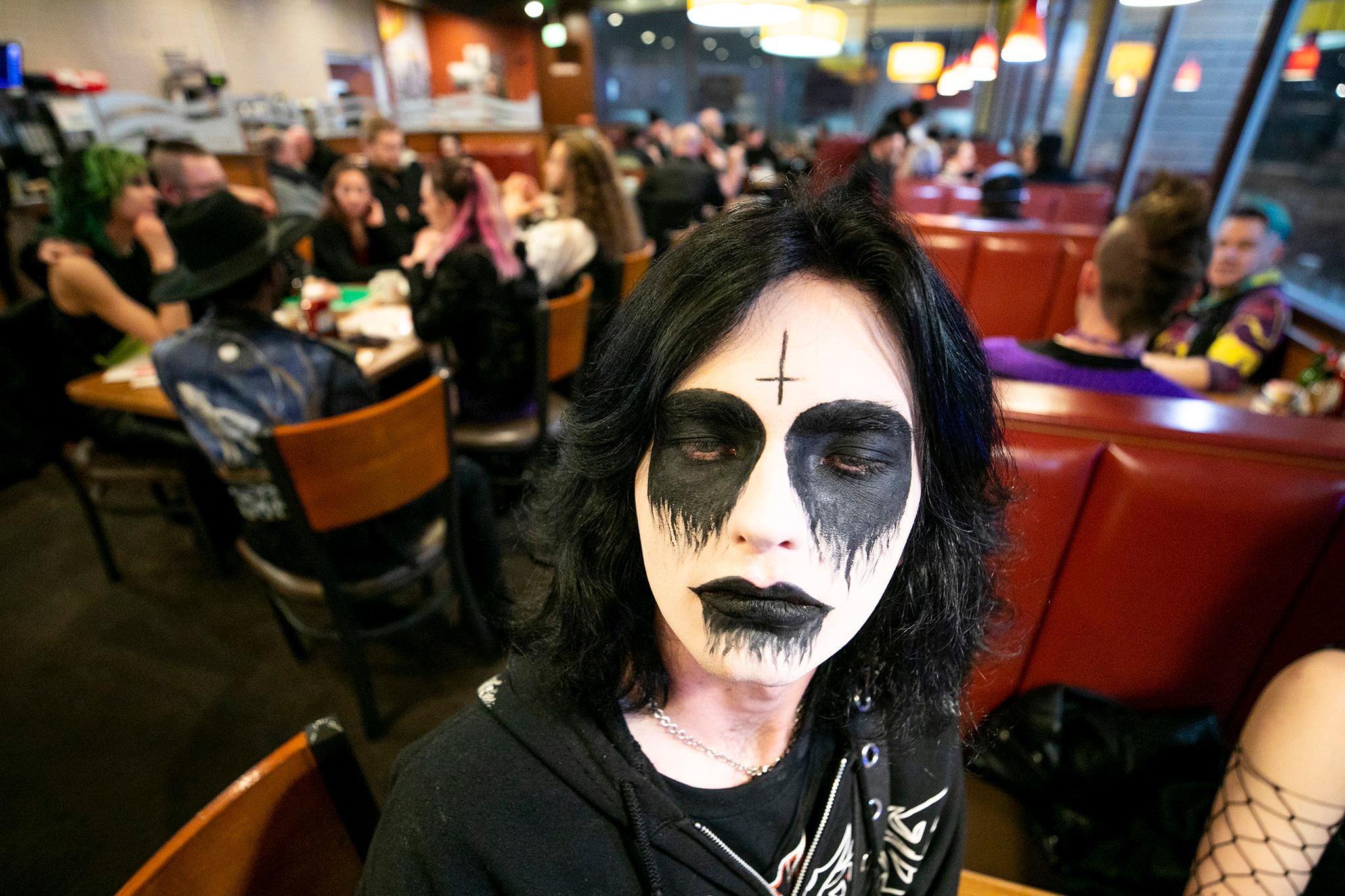The internet wasn't quite a thing when AJ Ritual was growing up in Albuquerque, New Mexico.
To find people like him, who were into dark aesthetics and darker music, he had to go eat breakfast food after dark.
"Denny's was our go-to," he remembered. "That's where, before cell phones and TikTok and all that, that was basically our way to meet new people that have similar interests as we do. And that was literally the only place we were able to go to meet people."
Then, his reality was reflected back to him on TV. "South Park"'s famous goth kids, whose styles echoed those worn by The Cure and were often found smoking outside their elementary school, were known to visit a suspiciously similar restaurant called Benny's late at night.
(Here's the clip. Fair warning, it includes crass language.)
So when his company, Ritual Noize, booked a show on Federal Boulevard across the street from a Denny's on Sunday, he knew what he had to do.
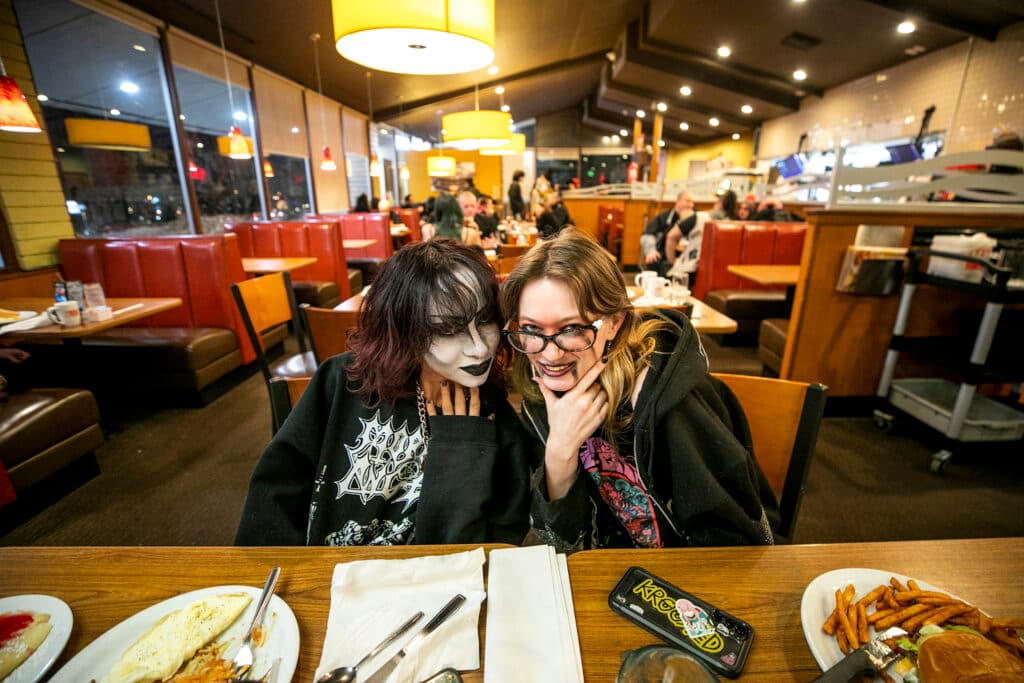
"Why don't we do a takeover?" he thought.
Once Combichrist's "Only Death Is Immortal Tour" concluded at Kulture Music Hall, the black-clad, dark-eyelined audience descended upon the greasy spoon for a "goth takeover."
But what started off as a nostalgic joke turned into something pretty sweet: a multigenerational meeting of people long bonded by a love of darkness.
What does 'goth' mean, anyway?
You probably have an idea if you went to an American high school, but it's trickier than you might expect.
Courtney Kolva, who got into the culture when she was a student in the '80s and '90s, said the word was more often a label people put on kids like her, who maybe didn't quite fit into the mainstream.
"For a long time, we wouldn't use the term 'goth.' But we've kind of grown into it," she told us. "But it's a reluctant acceptance, and it's the easiest label."
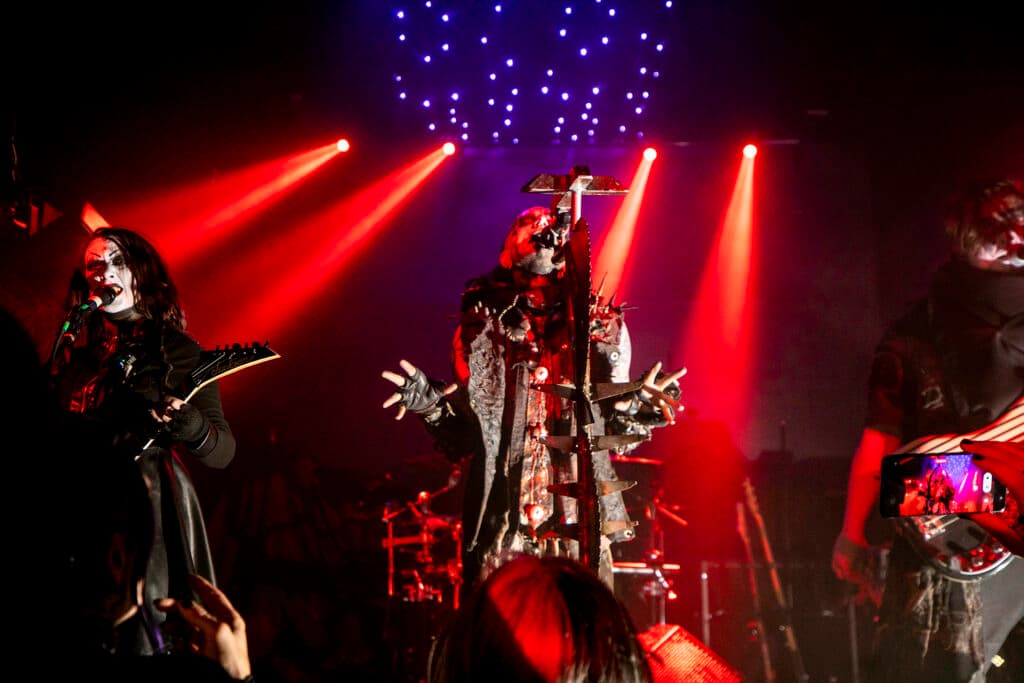
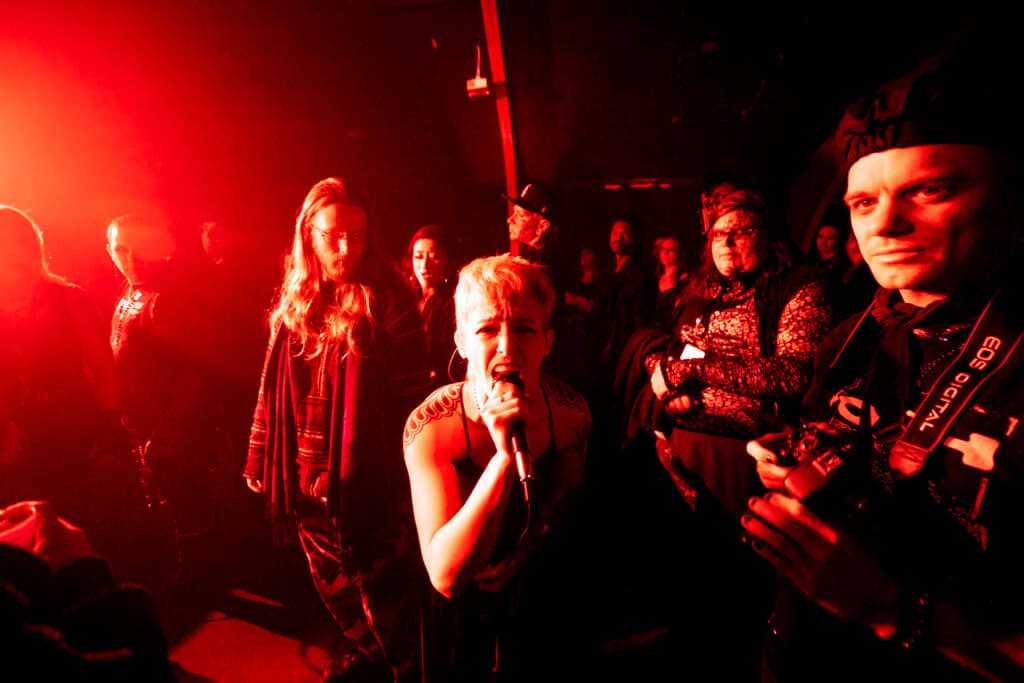
Ritual said he also generally resists the word, though it seemed appropriate for the takeover event.
"When someone puts you in the goth box, that kind of destroys all creativity, because we're so much more than just a goth company," he said. "We don't like being put in boxes, because we're far too creative to just have one genre of music or style or fashion or whatever."
Elliott Berlin, bass and keyboard player for Combichrist, laughed when we asked him.
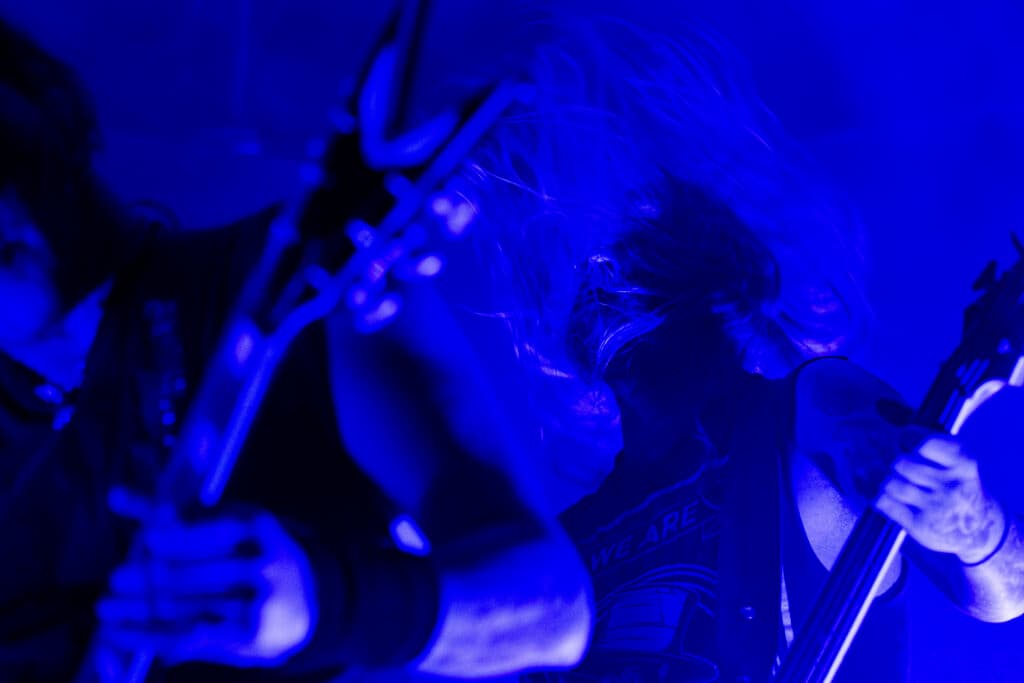
"It's like asking for a description of what is funk," he giggled. "I guess dark aesthetics and electronically orientated gravitation in the music?"
"Generally kids who wear black, adults who wear black?" guitarist and bandmate Jamie Cronander added before they donned their makeup for the night. "I don't feel like there's any real rules to it."
Others we spoke to mentioned goth music's roots in punk, which means it's inherently a little political. But everyone said the culture transcends any one aspect. You just know it when you feel it.
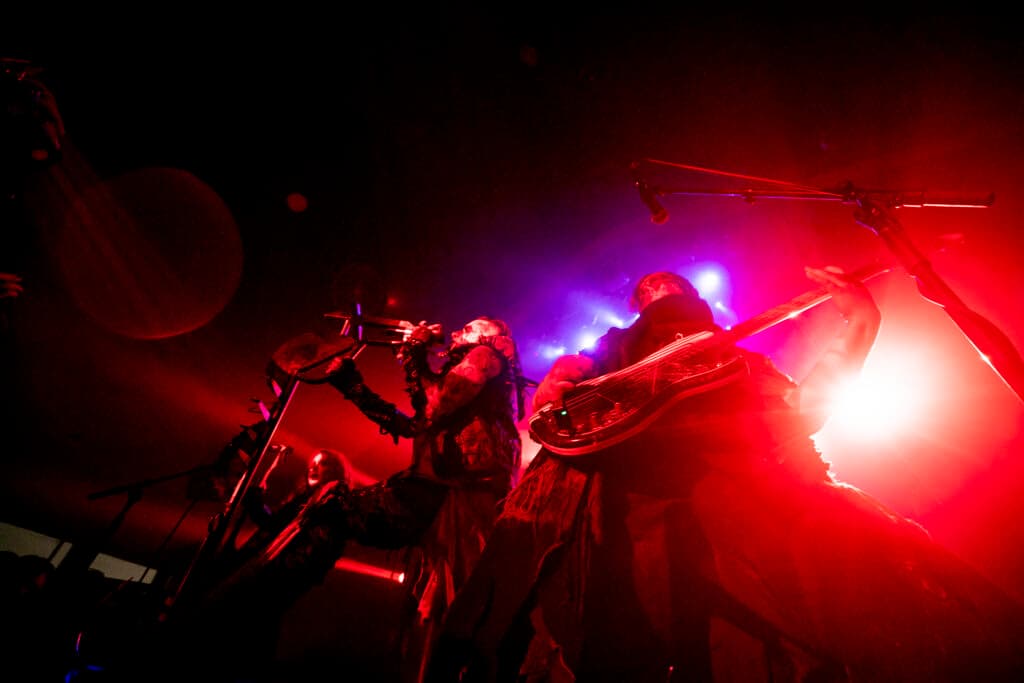
And for a lot of them, who got into goth's trappings when they were young, it was never something to grow out of.
"It's not a phase. It really isn't. It's who we are," Kolva said. "We just like to look like this. We like to listen to the music. We like to hang out with our friends and do everything that everyone else does."
For her part, Kolva has kind of embraced the label. She's now part of the Colorado Goth Society, a collective that plans outings to cemeteries and puts on an annual Goth Prom.
Definitions aside, one thing was clear: Goths of past, present and future loved having a place to gather.
Ritual worried the takeover would be a bust, since heavy snow made the city a rather undesirable place to venture into on Sunday.
But he was wrong: Denny's filled with people, many who didn't even go to the show.
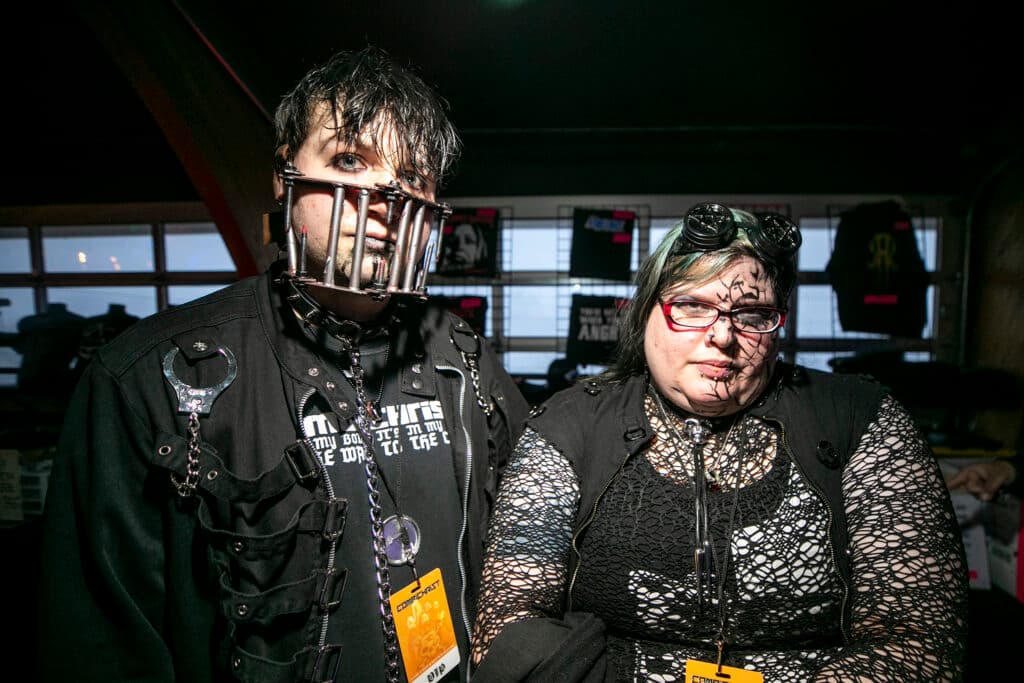
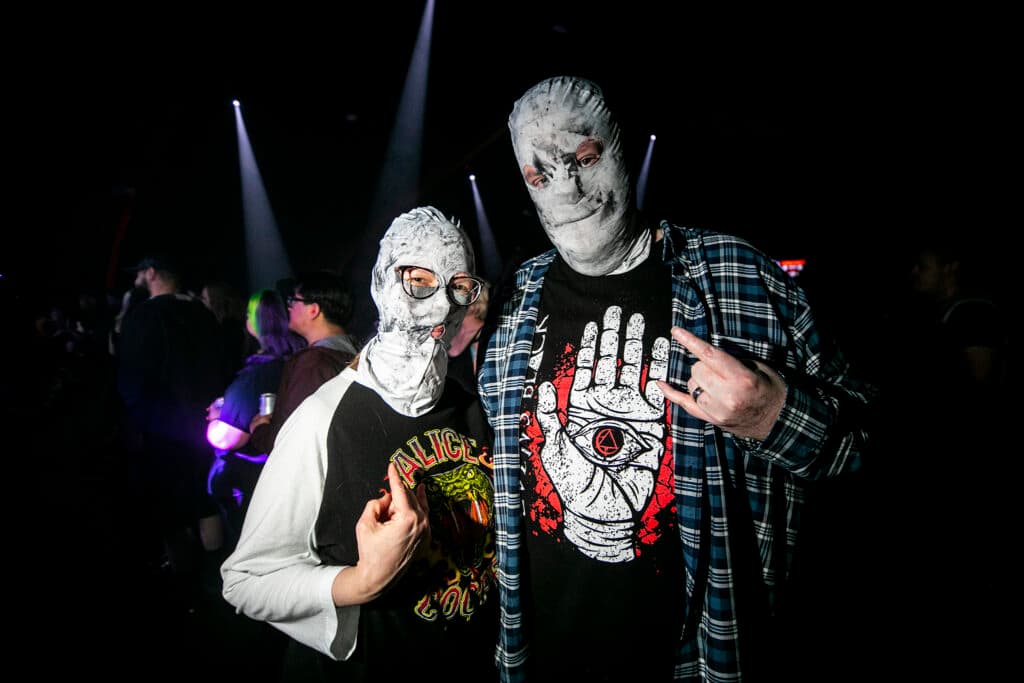
"I'm not gonna lie. I saw some of my friends posted it on Instagram, the flyer for it, and I was like, 'Sounds fun. Come eat. Meet people,'" Jameson Stirling, a North High student, told us as he and his friends waited for a midnight snack.
Though a lot of the younger goths in the room didn't see Ritual's concert, this Denny's was already a regular spot for many, who come here after shows at the nearby 7th Circle Music Collective and D3 Arts venues.
Aurora Williamson, who shared the table with Stirling, said she liked seeing so many likeminded people in the room. While she knows society hasn't always been accepting of their style, she said things have changed in recent years. People have been bullied less for wearing black as the culture has bled more into popular culture.
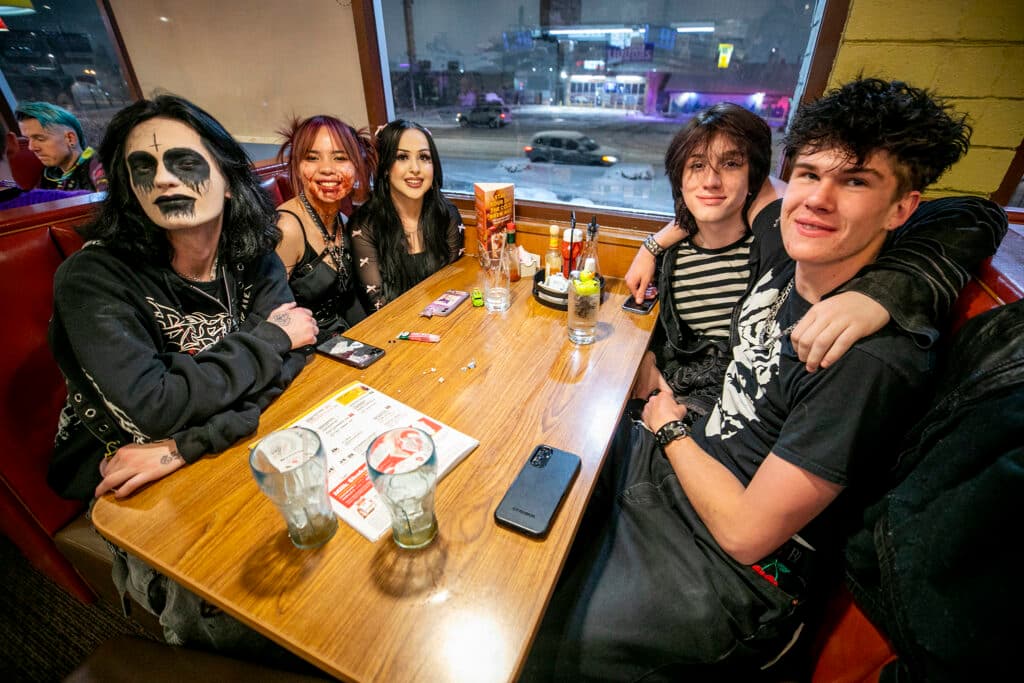
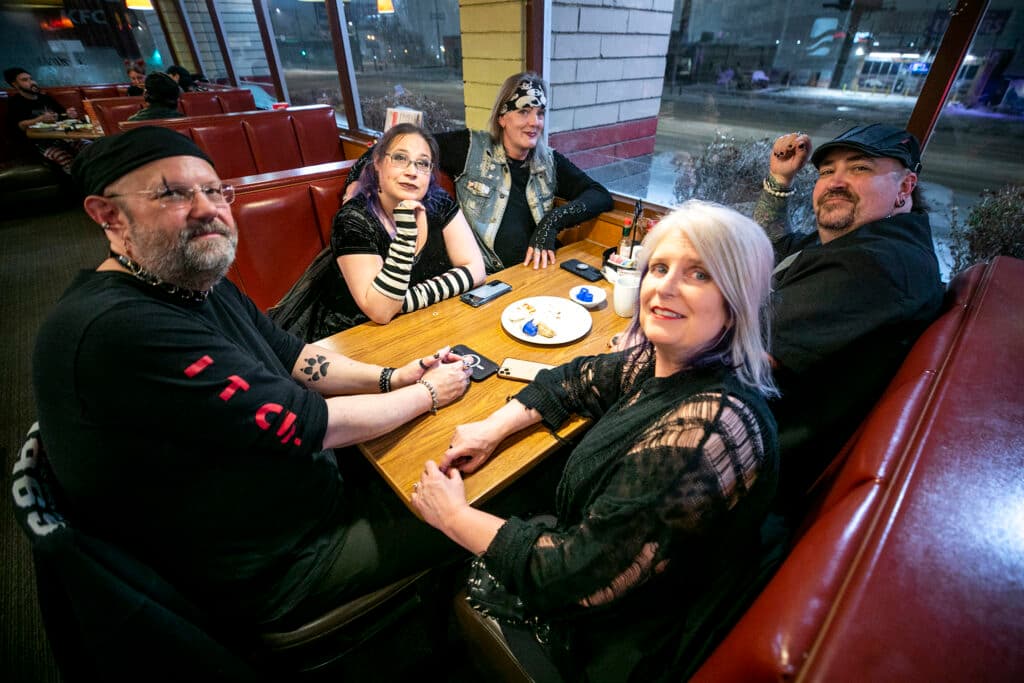
"It's just now becoming bigger, more inclusive," she said. "People are becoming a little more proud of it."
Denver may be an extra-inclusive place for this, too. Both Combichrist's Berlin and Cronander said they always love swinging through town.
"Denver is always one of the best shows on the tour. Great crowd, good people, fun city to be in," Cronander told us. "I've never had a bad show in Denver."
Part of the reason, he said, is a dedicated promotor like Ritual who helps hold the scene together. Ritual said there's just a lot of fans here, and others who drive from towns that bands rarely visit.
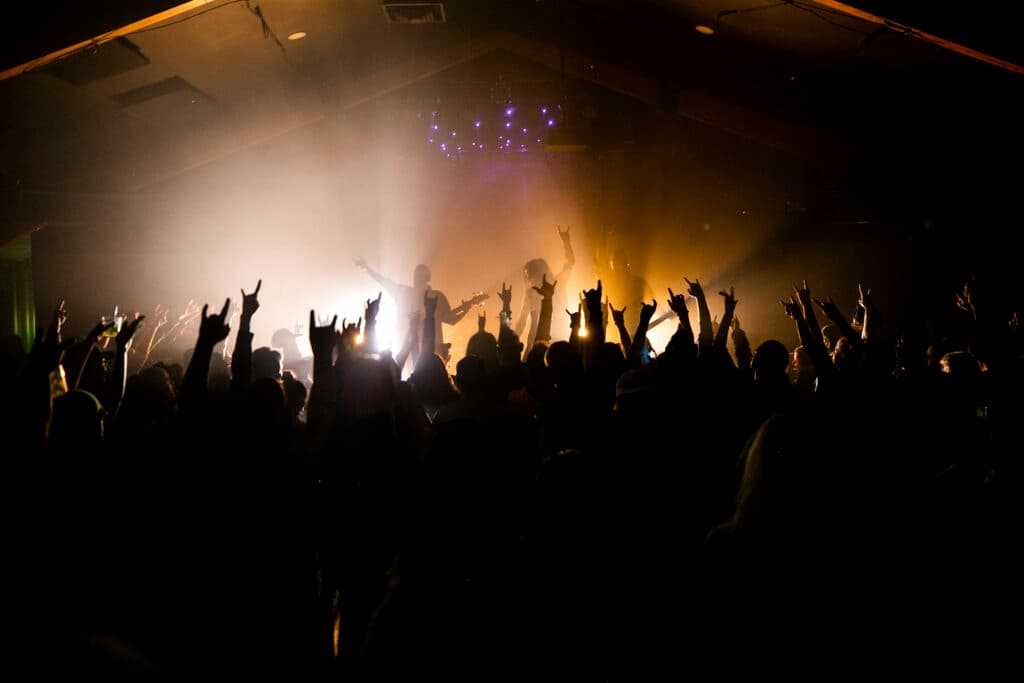
And while Ritual was too busy closing down the venue to make it across the street for his own event, he said creating that space was as important as giving the touring musicians a place to land. So often, this crowd only comes together in loud nightclubs.
"We rarely have a chance to just sit down and talk to people, so this also builds the community as well," he said. "Those types of events are cool, just because you can actually talk to people and get that connection and not just have the crazy music."
For him, this is more than a social calling. Ritual has said this scene saved his life.
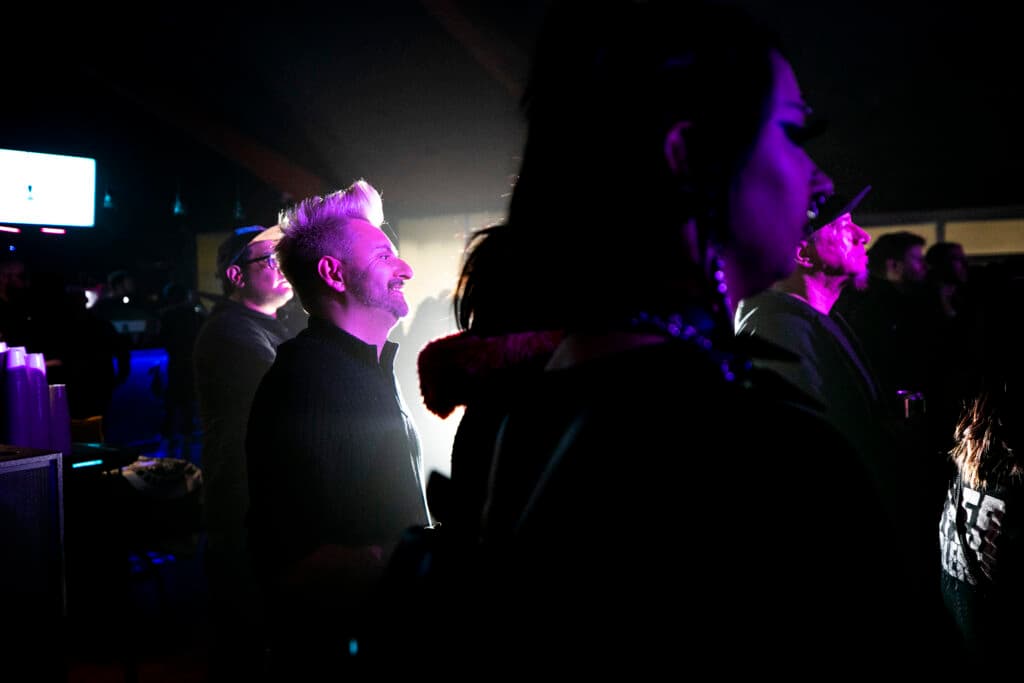
Jesse Warner, who also missed the concert but found his way into Dennys on Sunday, said he felt that pull to celebrate his comrades in darkness.
"We love the makeup, we love the death, we love the bands, we love the vibe, everything," he told us. "I love who I am. I love the beliefs that I have, I love the beliefs that everyone in my group has–"
"And we love Denny's," his friend, Skyy Evans, interjected.
"And we love Denny's," Warner said.
